
People
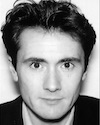 |
Hugues Azérad specialises in comparative literature and aesthetics (Proust, Joyce, Faulkner, Bonnefoy, Glissant, Nerval, Benjamin, Adorno, Rancière), postcolonial literature, modernisms, utopia, film, French literature/poetry from 19th century to the present and links between Language learning and cultural studies. |
|
Timothy Chesters is a specialist in French Renaissance literature and thought. He is especially interested in developing a cognitively inflected approach to literary texts, able to take account of current research in psychology (perception, attention, intuition), philosophy (especially philosophy of mind), and linguistics (pragmatics and Relevance Theory). Though this is a broad-ranging project, Tim retains a special focus on the major authors of the French Renaissance (Rabelais, Scève, Ronsard and Montaigne). |
|
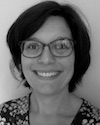 |
Marie-Christine Clemente specializes in 20th- and 21st-century French literature and culture, with a particular focus on questions of memory and autobiography. |
 |
Martin Crowley works on modern and contemporary French and Francophone thought and culture, looking in particular at cultural and philosophical engagements with the demands of ethics and politics. |
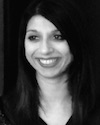 |
Amaleena Damlé's research interests lies in embodiment, affect, gender and sexuality in 20th- and 21st-century French and francophone literature, philosophy and visual culture. She is the author of The Becoming of the Body: Contemporary Women's Writing in French (EUP, 2014), and is currently working on a new project that considers emotional life in the feminine in recent French culture. |
 |
Mark Darlow specialises in eighteenth-century French theatre and music (especially opéra-comique), Rousseau, Bernardin de Saint-Pierre and the culture of the Revolutionary period. |
|
Georgina Evans works on cinema, focusing on the communication of sensory experience, including non-human senses, the representation of that which is ordinarily invisible, underwater film, non-mammalian animals on film, formal questions concerning the construction of the frame and the 'fourth wall', and fairytales. She is based in the French department but her interests extend beyond French cinema, and address film from the early 20th century onwards. |
|
|
Emma Gilby's research focuses on early modern France. She is particularly interested in early modern critical thinking about literature and the visual arts, and in investigating modern critical practices by considering their history. She is currently working on Descartes in the context of contemporary poetic theory. |
|
|
Miranda Gill works mainly on nineteenth-century French literature and European thought. Her research focuses on the history of the emotions and pre-scientific moral psychology. She is particularly interested in the relationship between masculinity, the emotions, and self-control in literary and discursive texts. |
|
|
Miranda Griffin works on medieval French literature from the eleventh to the fifteenth century. In particular, she is interested in exploring the way in which the human and the nonhuman are defined in the Middle Ages. Miranda's current project focuses on the depiction of landscape and journeys in medieval French literature. |
|
|
Liz Guild works on the history of subjectivity in early modern France, particularly the interrelated histories of thought and affect. She focuses on texts produced during the cultural, political and religious upheaval of the later sixteenth century, and explores the effects of such conditions on thought and affect as evident in developments in form, rhetoric and poetics at the time, notably in Montaigne's writing. . |
|
|
Nick Hammond is Professor of early modern French literature and culture, with particular interest in popular culture (street songs), sexuality, religious thought, poetry and theatre. The writers he has worked on include Pascal and writers attached to Port-Royal, Sévigné, Lafayette, Corneille, Molière, Racine, Bossuet, D'Aubignac, Saint-Pavin, Furetière and Tallemant des Réaux. He is currently leading a project which involves transcribing and performing 17th- and 18th-century street songs (http://www.parisiansoundscapes.org). |
|
 |
Ian James's research focus' primarily on twentieth-century and contemporary French philosophy and critical theory and also on literary and visual aesthetics. He is currently engaged in a project that interrogates engagements with science and technology in contemporary French thought. |
|
Mari Jones is interested in all aspects of language change, language contact, language obsolescence and language revitalisation, with a particular focus on the Romance Languages and the Celtic Languages. Her current research involves the analysis of Insular and Mainland Norman. |
|
 |
Jean Khalfa’s areas of research are the history of philosophy, modern literature (in particular contemporary poetry and Francophone writing), aesthetics and anthropology. |
|
John Leigh works on French writing of the eighteenth century. He is particularly interested in particular writers, such as Voltaire and Beaumarchais, but also likes to pursue various themes as they develop throughout the century in their European context. He is interested also in the way many of the period's thinkers use fictional forms, such as plays and stories, to express their ideas. |
|
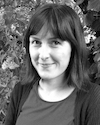 |
Laura McMahon's research focuses on French and Francophone cinema, contemporary French philosophy, and intersections between film and philosophy. |
 |
Isabelle McNeill works on French and transnational cinema and film theory, with a particular interest in cultural memory, urban space, belonging and travel. Her current focus is on representations of Paris in cinema, addressing questions of urban history, tourism and architectural/cinematic perspective |
|
Taylor, Dr Andrew Andrew Taylor's research lies broadly in the writing and culture of renaissance humanism with particular interests in the translation of ancient texts, scholarship and book history in the sixteenth century, and Anglo-French religious and literary relations in the early Reformation. |
|
|
Dr Tonneau is a specialist of early-modern French thought, especially Pascal and Diderot. He is interested in Theology, ethics, politics, the relation between philosophy and literature, Pascal, Diderot, Robespierre, the French revolution, Aimé Césaire. |
|
|
Nick White's research focuses on 19th century French literature, with a particular interest in the issues of war, friendship, love, marriage, and the family, and in the methods of cultural and literary history. Having written books on "The Family in Crisis in Late Nineteenth-Century French Fiction" (1999) and "French Divorce Fiction from the Revolution to the First World War" (2012), he is currently writing on the "war before the First World War": in other words, the Franco-Prussian War and the Commune (1870-71). |
|
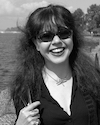 |
Emma Wilson has research interests in questions of affect, memory, the senses, love and desire. She has written on children in cinema, and on uses of cinema in contexts of intimate and historical responses to loss and pain. |


